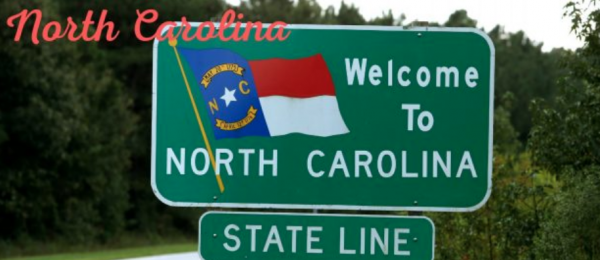How North Carolina’s Sports Betting Legalization will Impact Government Revenue
If you’ve followed the emergence of the regulated sports betting industry in the United States, you’ll quickly understand that it doesn’t take a brain scientist to realize who the true beneficiaries are. That would be the state. And North Carolina is the latest seeking to gain from the lucrative sports gambling sector, courtesy of an 18 percent tax rate for operators.
After experimenting for a bit by allowing for limited retail sportsbooks, the Tar Heel State is now going all in. North Carolina Governor Roy Cooper signed House Bill 347 into law. In a nutshell, the new law authorizes and regulates wagering on professional, college and amateur sports and on horse racing and allows for live horse racing in the state.
"This legislation will help North Carolina compete, make sure taxpayers receive a share, create many good-paying jobs and foster strong economic opportunity," Cooper said the day of the signing. "As we move forward, we should work to make sure more of the revenue is used to invest in our public schools, teachers and students.”
States Can't Lose
The regulated sports gambling sector in the US has proven lucrative…primarily for the states. Few of the sports books in operation since 2918 have turned a profit.
Operators in NC will have a tough time turning a profit with an 18% rate. Per numbers from Betting NC, that’s more aggressive than the 8.5% rate found in New Jersey for retail sportsbooks and for internet and mobile tax rate of 13%, but well below the greater than 30% tax rate found in Pennsylvania and near 50% in New York State.
New Jersey continues to hold its position among the top 5 revenue generators in the market, which has grown by nearly 70% in the last 12 months. Operators paid out $45.9m to the state over a 12 month period. Do the math! North Carolina will be imposing nearly double the tax rate.
Maryland operators pay 15% on gross gaming revenue. Maryland sports betting handle topped $320.1 million in May. They generated $42.7 million in revenue after posting a win rate of around 13%. This all translated into $4.6 million, the second highest tax generated for any month despite revenues being down 3% from April. The record month here so far is $5.3 million in March. Maryland is relatively new to the market and the best months are to come (September through March).
Maryland sports betting handle topped $320.1 million in May, down 3% from the month before. It is the second-lowest monthly handle total since online sports betting began in November 2022 ($219 million.)
According to figures recently released by the Maryland Lottery and Gaming Control Commission, sportsbook operators generated $42.7 million in revenue after posting a win rate north of 13%. Operators have consistently held more than 10% each month since the launch of mobile sports betting in the state in November 2022.
$4.6 million. The state received $5.3 million in sports betting tax in March of this year.
Where's the Money Going?
As Gov. Cooper noted, like in most states, tax money will go towards education and public works. It will also help boost the state’s lucrative sports markets. North Carolina is one of the most highly represented in NCAA Men’s Basketball. And they have their fair share of top pro teams as well, the Carolina Hurricanes in the NHL among them.
"We are extremely grateful for all of the hard work by lawmakers from both sides of the aisle to get this bill to the finish line," said Don Waddell, President and General Manager of the Hurricanes. "We will now have the opportunity to build a world-class sports-wagering facility to expand the entertainment options around PNC Arena. Our plans will also include a restaurant and bar available to fans every day, helping to spur additional development in and around the arena district.”
The N.C. The State Lottery Commission and its staff have the responsibility to license and regulate sports gambling. They will govern up to 12 sports wagering operators and their service providers.
Specifically, here is how the money is set to be allocated:
- $1 million towards North Carolina Amateur Sports and the expansion of youth sports.
- Up to $300,000 to collegiate athletic departments at the state’s 13 universities.
- $1 million to the N.C. Outdoor Heritage Advisory Council grants up to $5,000 per team or group, per county, and grants up to $25,000 to attract amateur state, regional, area, and national sporting events, tournaments, and programs.
- 20% distributed evenly among the 13 state universities to support collegiate athletic departments.
- 30% to a new North Carolina Major Events, Games, and Attractions Fund.
- 30% to the state’s General Fund.
- Gilbert Horowitz, gambling911.com














